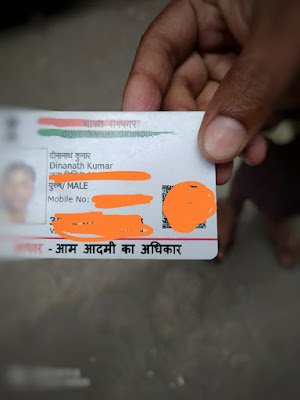Periods, don’t stop for pandemic
The world is going through tough times with the pandemic
Covid-19, which has infected over 14,41,128 people and killed 82,992 people in
the past 4 months. In India, after receiving cases from international travel
(Stage I), the infection is now spreading locally (Stage II) at a faster rate,
with the reported
number of cases at 5,194 and death toll at 149, as on 8th April 2020
morning. With the growing cases, the prime minister decided to have a complete
lock-down to save its citizen which has taken the face of a global pandemic.
News of lock-down hit people like there will be famine
resulting in taking leverage of daily essentials as much as they can result in scarcity
for those who are truly in need. Realizing such atrocities of store up daily
essentials by citizens' government then releases a set of essential goods of
utter importance during this pandemic and absence of menstrual and hygienic
products for women. Infact, they are never a part of disaster relief response. As
per NFHS 4 data, approximately 56 percent of
menstruates in India use hygienic sanitary items, including locally
prepared sanitary pads (16%), commercial sanitary pads (42%), and tampons (2%)
in combinations. And, under current situation, when life has stooped; people
are facing problems in meeting basic necessities, sanitary pad is listed as
non-essential item, this could lead women to switch to the less hygienic alternatives;
adding further risk to the women health.
Online multinational companies like Amazon and Big
Basket and others are not being able to get access to these products due to
the obscurity of the entire situation, making it even more difficult for women
and trans-men with disabilities especially from not so good economic
backgrounds to get access to these products. When women do not have access to
proper sanitation and hygiene facilities, it creates a higher risk for
contagion for any infectious disease. Menstruation makes the need for safe
water, sanitation and hygiene, especially, important for women. In such
conditions, access to safe water, sanitation and hygiene can be a matter of
life and death. According to a report published by WaterAid, illnesses related
to a lack of water, basic sanitation and hygiene were responsible for the
deaths of almost 800,000 women around the world in a single year making it the
fifth biggest killer of women behind heart disease, stroke, lower respiratory
infections and chronic obstructive pulmonary disease.
Considering this, our organization decided to provide
sanitary pad with ration kits.
Zarina Ahmed (Co-founder), Nafisa (Volunteer) Sahegaami .



Comments
Post a Comment